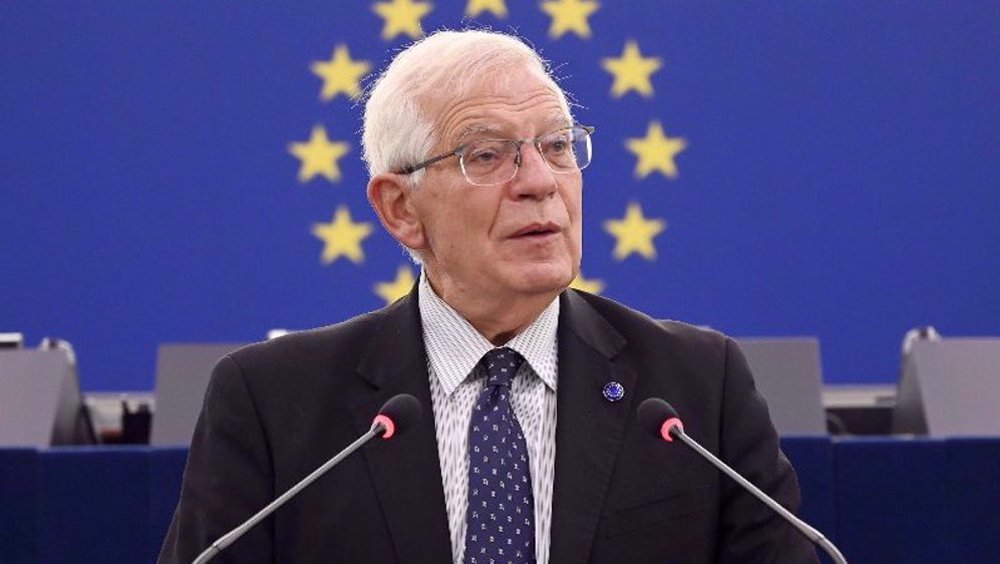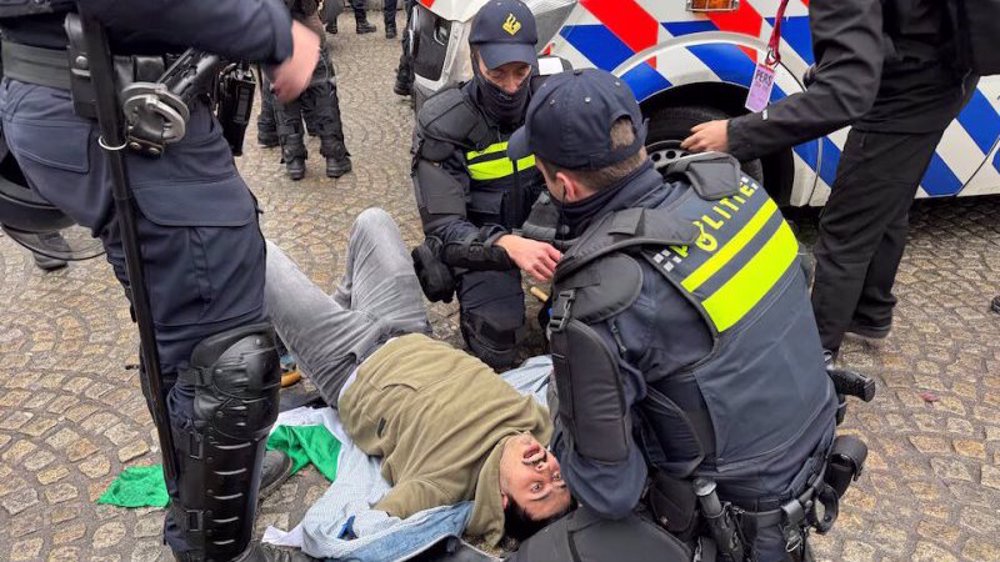EU voices concern over Turkey’s contentious immunity bill
The European Union has expressed worries about the Turkish parliament’s recent approval of a bill that would strip lawmakers of their immunity from prosecution, in a move which according to critics is aimed at suppressing dissent.
In a statement, EU foreign policy chief, Federica Mogherini, and European Commissioner Johannes Hahn described the Turkish legislature’s vote as “a matter of serious concern.”
The statement was released hours after a total of 376 deputies in the 550-seat assembly voted in favor of the government-backed bill to amend the constitution, allowing lifting lawmakers’ immunity from prosecution.
The bill will become law directly without being put to a referendum, but it still needs to be signed by President Recep Tayyip Erdogan.
Under the new legislation, some 138 opposition lawmakers could be at risk of prosecution.

The officials said “immunity must apply to all on a non-discriminatory basis and decisions on lifting immunity must be based on the merits of each specific case” without any political considerations.
“Overall, the framework for parliamentary immunity should include specific and objective criteria for taking decisions on lifting immunity. A restrictive interpretation of the legal framework and the Constitution in particular continue to pose a risk to the freedom of expression of Members of Parliament in Turkey,” the statement read.
Selahattin Demirtas, the co-leader of the pro-Kurdish Peoples’ Democratic Party (HDP), described the parliament’s decision as undemocratic, saying it aims to boost the powers of the president.
The constitutional amendment was proposed by the ruling Justice and Development Party after Erdogan accused the HDP of being an extension of the Kurdistan Workers’ Party (PKK), which Turkey deems as a terrorist group.
Erdogan views the HDP as the political arm of the PKK and wants the pro-Kurdish legislators to face terrorism charges. The HDP categorically denies any affiliation to the PKK.
Since June 2015, the Turkish military has been engaged in a military campaign against the PPK in the southeastern border areas as well as northern Iraq.

A shaky ceasefire between Ankara and the PKK that had stood since 2013 was declared null and void by the militants following the Turkish strikes against the group.
Turkey’s operations began in the wake of a deadly July 2015 bombing in the southern town of Suruc, which the Turkish government blamed on the Daesh Takfiri terrorist group.
After the bombing, the PKK militants, who accuse Ankara of supporting Daesh, engaged in a series of reprisal attacks against Turkish police and security forces, prompting Turkey’s military operations.
VIDEO | Press TV's news headlines
VIDEO | US-Israeli genocide: Will Gazans see ceasefire deal achieved?
VIDEO | Grief strikes Parachinar: 44 lives lost in terror attack
VIDEO | Yemen’s armed forces target Israeli airbase amid nationwide pro-Palestinian rallies
Putin vows more test of new hypersonic missile
VIDEO | Jordanians continue rallies to denounce Israeli genocide in Gaza, Lebanon
6 Israeli soldiers commit suicide: Reports
Diplomat discourages recourse to pressure, intimidation, confrontation against Iran















 This makes it easy to access the Press TV website
This makes it easy to access the Press TV website